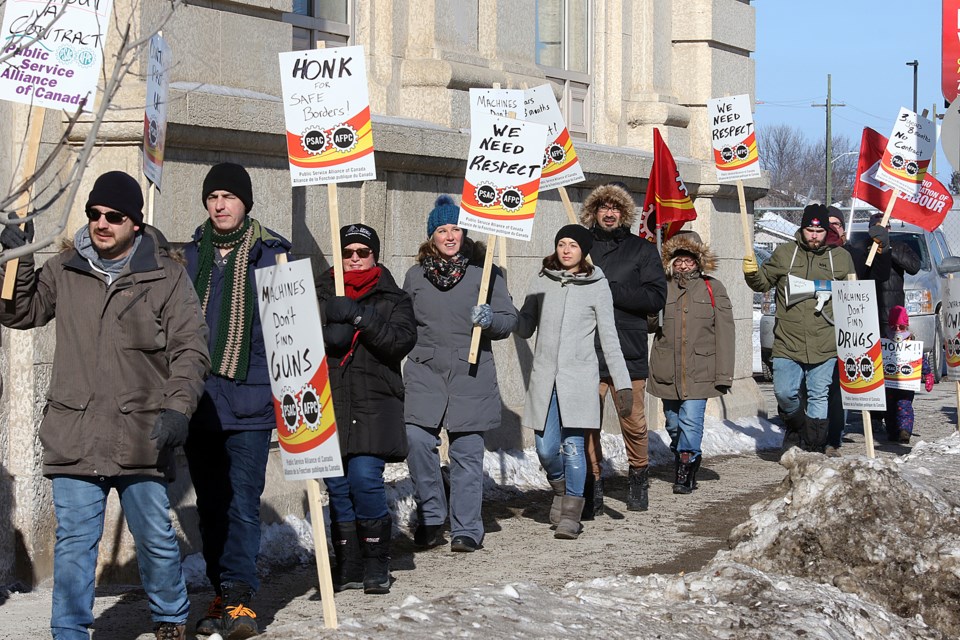THUNDER BAY – Canada Border Services Agency officers have been without a contract for nearly four years and are unhappy with the situation.
On Monday about a dozen workers from the Customs and Immigration Union, a division of the Public Service Alliance of Canada, held a lunch-hour march in front of CBSA’s offices on May Street, demanding the agency get a contract done.
“Fair contract now!” marchers shouted, passersby honking their horns in a show of support as the group circled the sidewalk, with temperatures outside dipping below -15 C.
It’s been far too long, said union representative Andrew Wiersema of Fort Frances, Ont., who joined his Thunder Bay colleagues for their 45-minute picket.
“We’re three years, eight months without a contract and it’s completely unacceptable. Our employer does not recognize the work we do as law enforcement. We’re asking for them to take that seriously at the bargaining table and so far they have not,” Wiersema said.
There are several issues at stake, including wage parity with other law enforcement agents such as the RCMP, and the right to retire after 25 years without penalty to their pension.
“It’s not an extra entitlement,” Wiersema said of the pension request.
Agents are also concerned with a rapid move toward automation at the country’s borders and, in particular, at ports of entry like airports. They're also looking for scheduling flexibility.
The marchers carried signs stating machines can’t detect drugs and machines can’t find guns, and Wiersema said it’s trained agents that keep Canadian borders safe.
“What that is resulting in is the reduction of staff,” he said. “Staff is shrinking in the agency and they keep rolling out these technologies that they don’t even have to pay for. We want that to be limited because it’s officers and it’s dedicated professionals that have the training that keep people safe, not machines.”
Wiersema said workers are waiting for the Public Interest Commission to make a ruling, a non-binding arbitration process they’re hoping will hasten the two sides to the table.
“It’s going to come back with recommendations, of what we’re asking for and whether it’s fair or not,” he said. “But it’s not binding, so we will try to bargain again. What we want the employer to do is come to the table seriously and meet some of our demands. Let’s talk about them.”
CBSA employees won back the right to strike under the current Liberal government, and while workers see it as a last-ditch option, it remains a possibility.
“We are an essential service and there’s a percentage of us that will be essential. In a strike position, if we get to that point, we would never put Canadians at risk. Their safety is paramount … However some non-essential things would have to go, like duties and taxes. We wouldn’t be collecting them,” Wiersema said.
